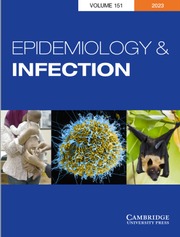Article contents
On the Supersensitation of Persons suffering from Diphtheria by Repeated Injections of Horse Serum
Published online by Cambridge University Press: 15 May 2009
Extract
When the blood serum of one animal is injected into an animal of a different species the injected animal in many instances appears to take no hurt. If however after a certain interval the experiment is repeated, it has been noted that the injected animal may speedily show evidence of physical disturbance. Its breathing becomes rapid: its heart-beat grows feeble: its limbs move spasmodically and general convulsions may ensue. These phenomena have been taken to indicate that the injected animal has been supersensitized—or rendered abnormally sensitive—to the serum employed. They may attain such gravity that the animal dies. It has been suggested that the same untoward issue is possible in the case of man, and that the death of patients under treatment for diphtheria is to be apprehended in certain circumstances as the result of repeated injections of antidiphtherial serum, for the reason that the serum in question is derived not from the human subject but from the horse. A suggestion which assails the prestige of the antitoxin treatment of diphtheria cannot be viewed with indifference: it must either be sustained or rejected.
Information
- Type
- Research Article
- Information
- Copyright
- Copyright © Cambridge University Press 1907
References
REFERENCES
- 7
- Cited by

